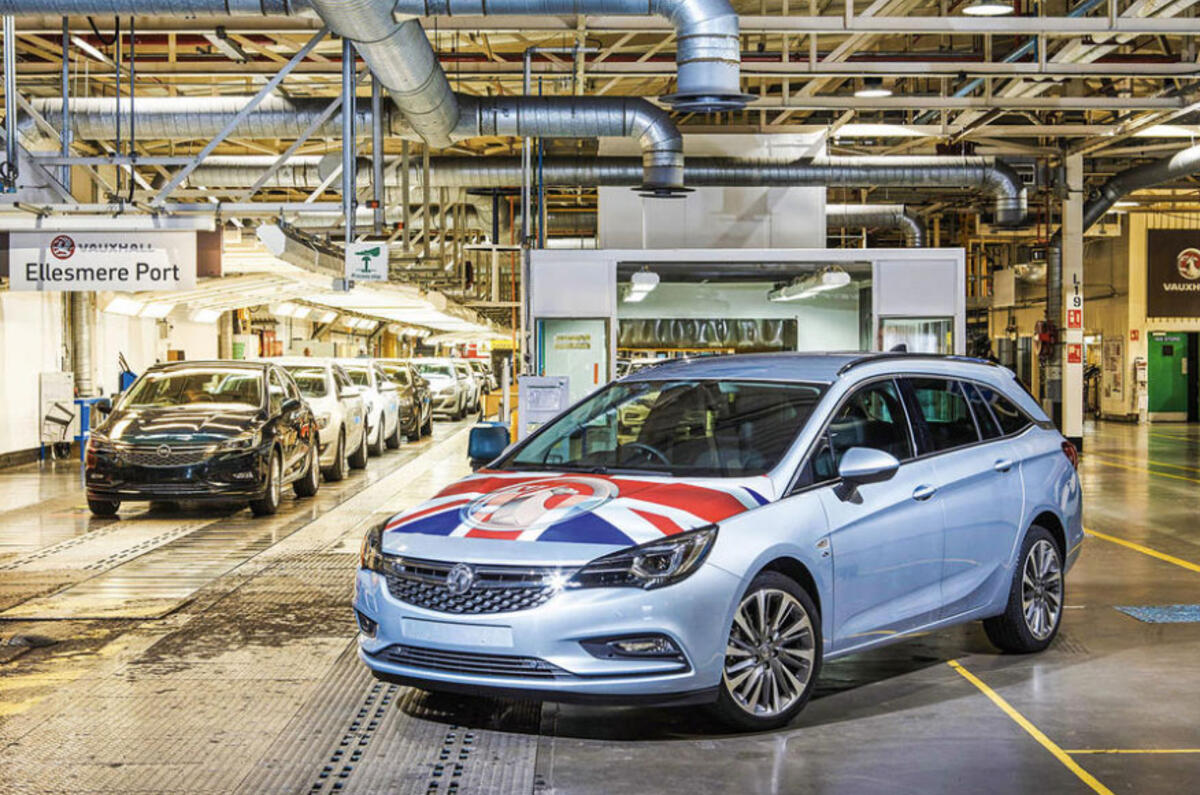New figures published by the Society of Motor Manufacturers and Traders (SMMT) show the UK’s car industry grew profits by 7.3% and added 17,000 new jobs last year, revealing the strength of Britain’s industry before the EU referendum vote.
Vehicle production grew by 5.2% to 1.7 million units while the industry’s environmental impact was reduced by 24.2% thanks to increased recycling and a reduction in landfill waste.
Turnover amounted to £71.6 billion in 2015 and the total number of people employed in the UK automotive sector reached 814,000, with 169,000 involved in the direct manufacturing of cars – 8000 up on the year before.
Brexit: business as usual for UK car industry
Investment reached a new record with £2.5bn injected into the industry – a figure that represents 12% of the country’s total research and development spend, emphasising the significance of the automotive industry on the economy.
Unsurprisingly, the SMMT is using the figures to urge the UK government to maintain Britain’s free trade deal with the European Union following Brexit.
SMMT chief executive Mike Hawes said Britain’s automotive success has been achieved thanks to its access to the EU’s single market. He warned that the UK’s departure from the EU could hinder future growth.
“Our growth depends on certainty and continued open and reciprocal access to the 100-plus markets with which the UK automotive industry so successfully trades,” he said. “This is not just finished cars but components, technologies and the wider automotive value chain. Any risks and uncertainty to these fundamental benefits need to be addressed head on by UK government.”
Brexit: what do the car makers think?
Brexit supporters argue that the UK buys so many cars from other countries in Europe that the EU will have to agree to a free trade deal in order to preserve jobs in countries such as Germany, which exports around a fifth of its cars to the UK.
Matthias Wissmann, president of the VDA, Germany’s automotive industry association, has previously said “keeping Britain in the EU is more significant than keeping Greece in the euro”.
Nigel Farage said in a European parliament meeting yesterday that he believes Europe needs the UK more than the UK needs Europe and made reference to Britain’s high demand for German cars.





Join the debate
Add your comment
Uncertainty
My own organisation exports about 85% of our products and around 70% of our services. Working and selling within the EU is as easy as the UK. Norway is a bit more difficult, but go beyond that and it gets expensive and awkward. I really hope that the government are lot more organised than they appear to be, because if we don't get a workable and simple deal on freedom of movement of goods & services, I can see a lot of problems ahead.
You know, working out of the UK is expensive, but worth it for the political stability, fairly good infrastructure and relative ease of doing business. 2 out of these 3 are now at risk. Someone in my US parent company has already remarked that we might be as well relocating the UK facility to Dubai. So I think most senior managers will be having a similar discussion.
Well of course Brexit will
Not a bad thing